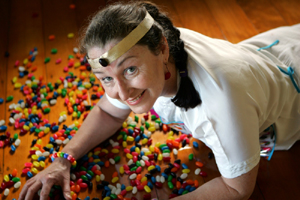I was recently contacted by a general practitioner who specialises in treating children who wet their beds.
He raised concerns that he was seeing an increasing number of parents who had previously taken their child to alternative practitioners.
One child had been to a chiropractor more than 20 times to be “adjusted”.
This was causing these families nothing but unnecessary distress – at sometimes considerable cost.
Bed wetting is a problem for many school-age children and their families. It can lead to social and emotional distress for the children and frustration for their parents. In Victoria alone, at least 37,000 children, between the ages of five and 15, regularly wet their beds, with one in 20 still bed-wetting at age ten.
What is the commonest cause of bed wetting and what treatments are effective?
While stating that they cannot ‘cure’ any disease, chiropractors claim that they “treat the cause” of a range of childhood disorders, including bed wetting. They claim that these conditions are symptoms of ‘subluxations’ caused by birth trauma or by minor knocks and bumps. They tell parents that untreated subluxations “can lead to greater problems both in the short and long term”. They offer “a safe and natural way to assist in restoring the nerve supply to the bladder that may affect normal bladder function”.
Chiropractors also claim that they are uniquely qualified to “to detect and remove these subluxations, through gentle spinal adjustments”.
However, subluxations do not exist.
The concept is a discredited theoretical entity.
When research is quoted, is generally over 20 years old, and the references are unreliable observational studies, rather than randomised clinical trials.
Osteopaths recommend osteopathy of the cranial field (OCF). They say that it is an effective treatment, and as good as medication.
Acupuncturists tell parents that their intervention works because “it treats the problem as a physical one”.
Other non-conventional interventions include hypnotherapy, psychotherapy, homeopathy and herbal remedies, but the evidence for them is weak.
In each case, it involves single small trials, some using dubious methodology.
While not all the causes are known, bedwetting does tend to run in families.
If one or both parents had wet the bed when they were children, it is quite likely to occur in their children.
For these children, research has shown that bed- wetting alarms will help more than 80% of them with most staying dry.
Alarms have good long-term success and fewer relapses than medication. Most reputable continence services and some children’s hospitals hire out alarms.
The good news is that, for most children, this problem can be fixed through fairly simple treatments, usually without the need for medication.
If bed wetting is worrying you or your child, then you should see your GP or a continence health professional – otherwise, let Nature take its course.
